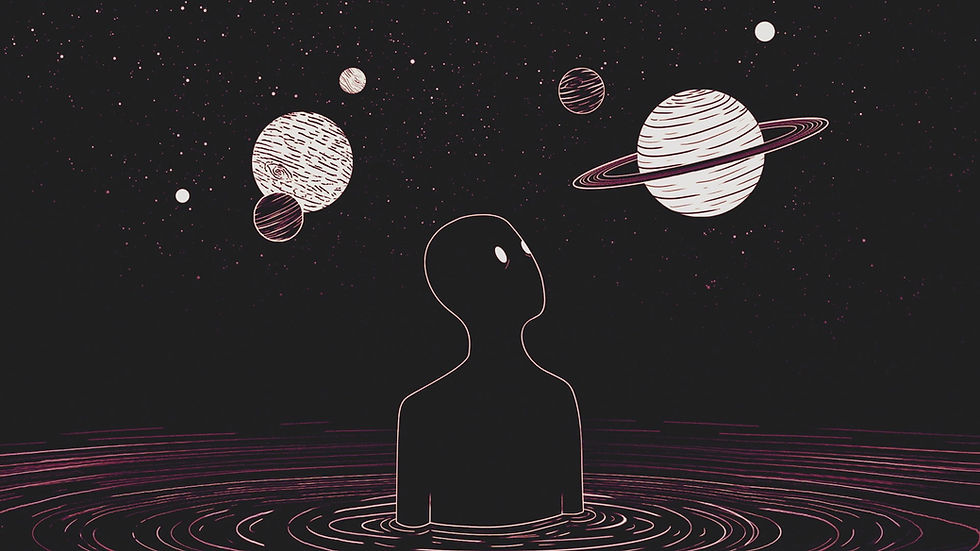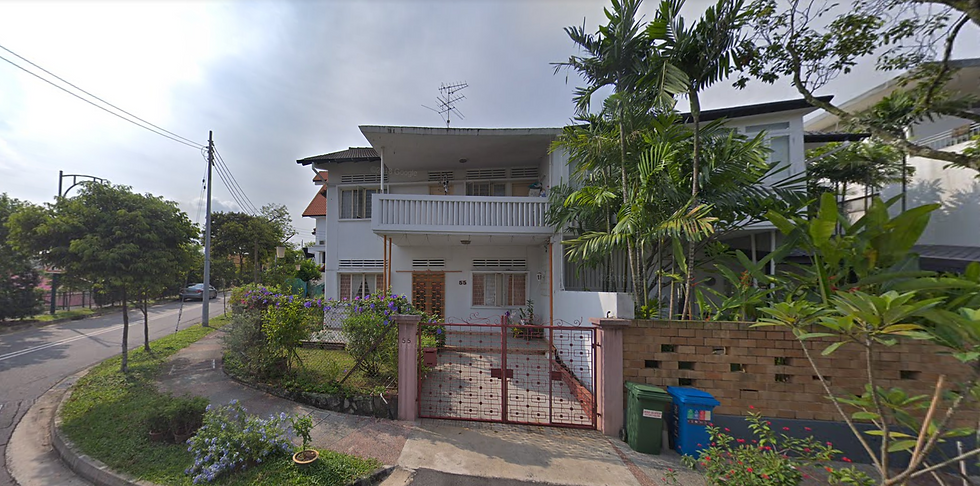More Time
- Taufiq Rozaini

- Mar 28, 2021
- 5 min read
"If I had more time, I would have written a shorter letter." - Mark Twain
An old lady lived in a house. This house had a toilet, and it was immaculate. They say your house is a projection of your mind. Okay, I say that, but isn't there truth in repeating it? For decades her house has remained the same vein of obsessively kept and gaudy and frail all this time. It was a museum of old-lady things, spruced up with the perennial offshoot of a new tablecloth or two flower vases switching place.
This old lady is in her 70s now, just the same phase as when she was in her 60s. She moves through time like a tectonic plate, on the imperceivable yet fatalistic scale of eons, ever slowly. The floor shifts beneath her and everyone cannot care.
It must be her triathlon to endure a standard of cleanliness this robust and unfailing. The bamboo poles her javelins, the dirty floor her track and she, a multi-disciplined athlete in her own right. And yet, she was rarely ever caught cleaning.
In her toilet, there's a small alarm clock on the shelf that is accurate to the minute. Who would spend such lengths in a toilet as to need to urgently know the time? Clocks are an artefact of the analogue past anyway. The alarm made even less sense. Is there really ever a need for precise timekeeping in facilities like these? Really, it seemed the clock was more a statement of committed tidiness and needless ornamentation than a product of necessitated function. It was there to be reset ever so often in demonstrated discipline.
There is a sink. Above it, at eye-level is a shelf where a toothbrush and shaver would normally be. Instead, there were arranged in a neat row four ceramic animals all facing forward. A thoughtless way to ease this looming loneliness. There was no soap. Why would anyone make such a ridiculous trade of items?
This was not a toilet. This room was just a display case of itself. The sink, shower and piping were just a demonstration of the real thing in some other part of her house. These were just for show. The toilet had remained immaculate and unchanged all these years because it was left abandoned and preserved there for decades; a fossil of modern living left conjoined to her kitchen. How can something collect dust if we are not there to breathe life into it? Dust and rust are artefacts of living.
The trend pervades the house. The living room, in its plastic perfection, shows no signs of real use. The jar of perfectly stacked and colour-coordinated macarons has been there for years. Nobody can remember when it was conjured, only that it was not there before. Alongside it were its neighbours of other jarred delicacies on a useless table. Decisions made to create an illusion of humanity.
On most days, she is squatted in the same chair, watching the same TV channel in a space constituting less than a third of her actual living room. Does she dine there too? Perhaps some nights she sleeps there. That chair is dirty, its cushions deformed. It is angled perfectly to face the television in spite of how badly it flushes to the wall, or specifically does not. It’s the most real thing in the living room, and, as privacy entails, the only real thing anyone sees. Her kitchen is full of pots and pans and ingredients hung like a wall of medals earned in times long faded. This old lady does not cook anymore. This house is barely lived in.
A house is a projection of mind. The house is a projection of self. The old lady is barely living. We’d like to wish people a swift death when it comes. That the process of being fully alive to being suddenly gone is as instantaneous as it could possibly be. But living is a process, and it is not only symbiotic with dying, it is dying. What is life and death but concepts relative to each other, one the lack of the other?
When you think of this old lady, you’re not sure which memory you’re supposed to hold onto.
Do you hold on to a faded polaroid of a spritely version of her when you were 7, cooking the best homemade meal in existence?
Do you admit that from those days on, she was in the process of dying away from you?
Do you take that polaroid and add asterisks and footnotes every time you meet, building up to a final picture that ends abruptly and unplanned when she passes?
Do you pretend that somehow makes the picture complete? Like there was some purposeful intention in its finality? Or some vague notion of control…
Maybe every moment, the youthful ones then, and the fading ones now, are all her and she is some amalgamation of all of it. Maybe it doesn’t matter. Who’s really dying? And when is she dead?
I try to be fearless in admitting that my parents are in the first stages of physical and mental failings. I notice it in sentences left incomplete because the right word leaves their tongue tips faster. I notice it in the caution with which they carry themselves, afraid to damage their frailing bodies. I notice it in reminders that once were not needed. I notice it in their eyes. I am here for them, I am dying along with them.
I want to spend the minimum time preparing for death. This essay then seems antithetical to that objective. I don’t like thinking of death, I don’t find it meaningful to prepare for something who’s repercussions come after it no longer matters. Yet I know too well death affects us equally before as after, more so in fact. What is the correct amount of time preparing for it? Sacrificing the now for the later, a little more of living for a little less of dying.
"If I had more time, I would have written a shorter letter." – Mark Twain
If I felt I had enough time alive, I would live a shorter death.
Here’s the kicker: Mark Twain never said those words, it is a misquote muddled somewhere through time. Too bad he isn’t alive now to clarify it to everyone who thinks he did say it. We make up who we think people are, and once their moment of life is over, it’s set in our minds and out of their control forever. I remember this old lady in new forms. For her sake, and undoubtably for mine, I shall remember her in the best of them.
I will remember her as a house, with couches at odd angles and cushions in ugly canted shapes facing a TV left on. It has messy wall plugs and tangled cables. Her walls have dents and holes where screws once were but were then removed, they have water marks and stains and chipped paint. Her bed is unmade and its underneath is caked with fur because her pets sleep there. This house has an underbelly and it is crumpled with overuse. In the storeroom of forgotten secrets, it is empty. There is no space in her house for things that merely sit around. I will remember her house as the beautiful mess it is. She didn’t have time for upkeep, she was too busy living.






Comments